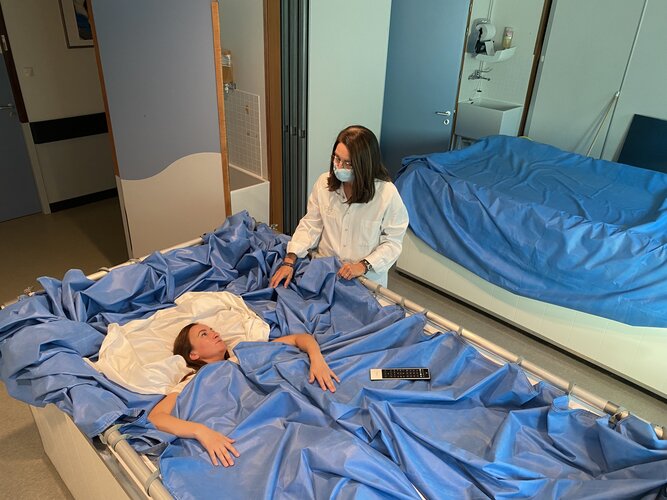A female volunteer gets comfortable in her waterbed, as the dry immersion study to recreate some of the effects of spaceflight on the body kicks off this week in Toulouse, France. Called Vivaldi, or Validation of the Dry Immersion, the campaign features all female-participants in a European first.
Immersion begins when water covers the subject above the thorax, immobilised with legs and trunk covered with a cotton sheet. Only the arms and head remain free outside the tarp.
As a result, the body experiences ‘supportlessness’ – something close to what astronauts feel while floating on the International Space Station.
In weightlessness, astronauts’ bodies lose muscle and bone density, vision changes and fluids shift to the brain. Finding ways to stay healthy in orbit is a large part of human spaceflight research.
Volunteers spend almost 24 hours a day in the immersion tank, limiting their movements as much as possible. Each day starts at 7 am with urine and blood samples, followed by scientific protocols and measurements to study how the body adapts.
All activities from leisure to hygiene are done within the constraints of immersion. Only a small pillow is allowed during meals to ease eating. Showering and transfer to other experiments are done outside of the tank while lying on their backs and with their head tilted 6 degrees down to minimise fluid shifts.
The results from this type of research do not only benefit astronauts but have implications for patients on Earth with similar disorders and elderly people.
This is the only the second time a dry immersion campaign takes place with all-female participants, and it is a first for Europe. ESA decided to launch the study to address the gender gap in science data.



 Image:
Image: